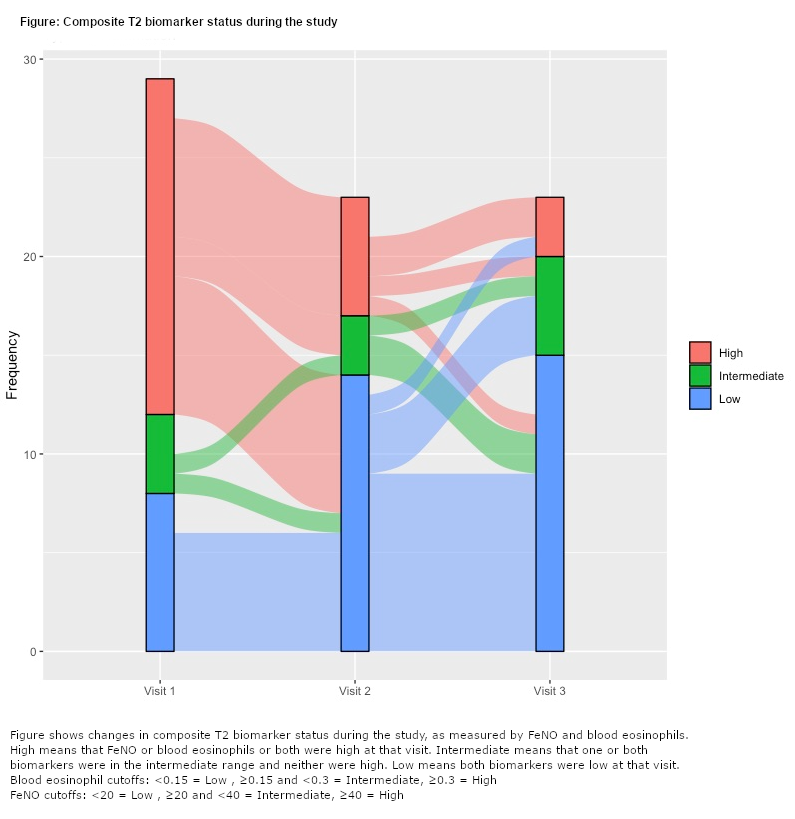Abstract
Aim
In a feasibility study, treatable trait (TT) guided asthma management showed clinically relevant improvements in asthma control (ACQ), quality of life (AQLQ), health status (SGRQ) and FEV1 (Fingleton et al, TSANZ ASM 2023). Changes in two type-2 (T2) biomarkers, blood eosinophils and FeNO, and associations between baseline characteristics and treatment response are described here.
Methods
Ten week two-centre open-label intervention study of patients with asthma receiving medication titrated to presence of two TTs: T2 inflammation and airflow obstruction. Participants had ACQ >1 and ?1 exacerbation in last 12 months. Linear regression estimates changes in continuous response variables in relation to predictors.
Results
Airflow obstruction was present in 18/30 (60%) participants. Although TT intervention was associated with reduction of type-2 inflammation (Figure); change in ACQ, AQLQ, or SGRQ was not associated with baseline FEV1/FVC, log FeNO, blood eosinophils or composite T2 biomarker status. Final FEV1% predicted, adjusted for baseline, was associated with baseline airflow obstruction. Change in FEV1 predicted per unit increase FEV1/FVC ratio (95% CI), -1.69% (-2.26 to -1.13), P<0.001.
Conclusions
TT guided asthma management for 10 weeks reduced T2 inflammation. Baseline T2 status was not associated with patient reported outcomes. Greater airflow obstruction at baseline was associated with a greater FEV1 response.
